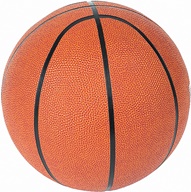 Thankfully, our beloved Hoosier state is rejoicing as we’ve placed five colleges into the Big Dance!
Thankfully, our beloved Hoosier state is rejoicing as we’ve placed five colleges into the Big Dance!
But with much attention this week now devoted toward brackets and sneaking in an online stream of a game, are Indiana employers paying the price?
Fortune cites stats from Challenger, Gray & Christmas indicating that a staggering 60 million Americans will be solely focused on tourney games later this week. And it could be costing employers up to $1.9 billion in wages.
That does sound like a big ol’ negative. But the executives quoted in the article report they’re not too concerned about it. So is it possible we should all just relax on the “it hurts productivity” argument and simply enjoy the experience?
Sports broadcaster and Talk Sporty to Me founder Jen Mueller says claims of lost productivity are overblown because the brackets increase camaraderie and conversation within the office. She contends that actually boosts your bottom line in the long run. (Frankly, this Indiana University alum likes the way she thinks.) See her reasoning below:
[tube]KnRWpkFAKJQ[/tube]

.jpg) Ball State’s Sports Link program and its students will play a vital production role in bringing NCAA March Madness to the masses. See info from a
Ball State’s Sports Link program and its students will play a vital production role in bringing NCAA March Madness to the masses. See info from a  Global workplace productivity is expected to suffer over the next month as the 2010 World Cup soccer tournament takes center stage. The U.S. impact won’t be as substantial. Despite the continued growth in youth soccer (my son wanted to take a personal day from camp to watch the South Africa-Mexico opener on Friday morning), the world’s most popular game has not attracted the same fanatical support here at home.
Global workplace productivity is expected to suffer over the next month as the 2010 World Cup soccer tournament takes center stage. The U.S. impact won’t be as substantial. Despite the continued growth in youth soccer (my son wanted to take a personal day from camp to watch the South Africa-Mexico opener on Friday morning), the world’s most popular game has not attracted the same fanatical support here at home. While driving into work, I listened to ESPN’s "Mike & Mike in the Morning" show relay that U.S. Education Secretary (and former Harvard basketball star) Arne Duncan has proposed NCAA teams who don’t graduate 40% of their players should not be allowed to compete in the postseason. A
While driving into work, I listened to ESPN’s "Mike & Mike in the Morning" show relay that U.S. Education Secretary (and former Harvard basketball star) Arne Duncan has proposed NCAA teams who don’t graduate 40% of their players should not be allowed to compete in the postseason. A